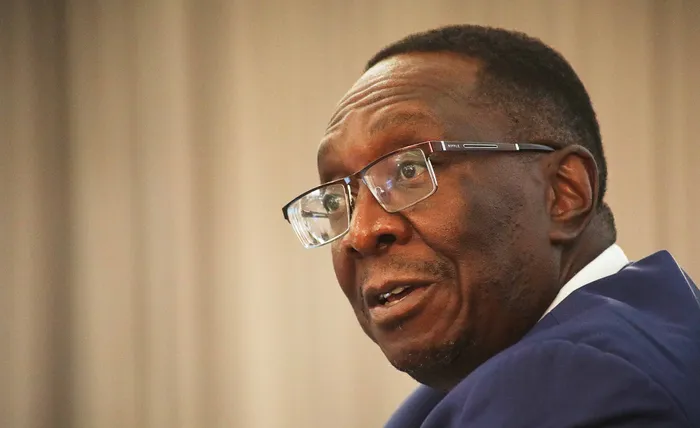
Gauteng Judge President Dunstan Mlambo has issued a final directive that from this week onwards, no civil trial dates will be issued in this division, without first attempting the mediation route
Image: File
It is all systems go from this week at the Gauteng Division of the High Court as no new civil trial dates will be issued to litigants unless they have proved that they have first tried to resolve their issues via mediation.
Judge President Dunstan Mlambo has issued a final directive on the implementation of mandatory mediation in this division for all civil trial matters, which has now come into effect. It has been issued following a wide consultative process by the division with law bodies, practitioners, and mediation organisations.
The Office of the Chief Justice (OCJ) said it is aimed at alleviating the backlogs and constraints that currently plague the division’s civil trial roll. A draft directive was earlier circulated by Judge Mlambo for inputs and comments from stakeholders. While some were against it, the OCJ said this was the best route to follow to ensure justice for all.
“The overarching rationale for the directive is to provide an effective and expeditious litigation platform that guarantees access to justice service, within the contemplation of the Constitution. As of February 2025, the Division’s Civil Trial roll has trial dates issued as far ahead as 2031,” the OCJ said.
It stressed that this situation is clearly untenable and infringes on the right to access to courts, and thus the leadership has decided to adopt drastic measures to address this situation. “The directive is borne out of the overwhelming insistence for trial dates by plaintiffs’ legal representatives for matters that have no triable issues and, as a result, have no need for adjudication by a judge,” it explained.
According to the OCJ, an overwhelming majority of matters on the trial roll of the Gauteng Divisions are settled on the trial day. It said less than 10% of matters on the trial roll of the division require a judge to resolve them through adjudication.
A sample of matters enrolled in both Courts in the period March 10 to 28 this year showed that out of the 59 matters before the Johannesburg High Court, only two presented a triable issue requiring a judge. In 32 matters, draft orders were granted in 21 matters, and 11 were settled. These matters had no triable issues; hence these outcomes, the OCJ said.
In Pretoria, over the same period, 339 were on the trial roll. Only 11 matters presented with triable issues requiring judicial attention. In 174 matters, draft orders were granted, and nine matters were settled.
"The statistical outcomes from these weeks illustrate in no uncertain terms that the civil trial roll is inundated with matters that have no triable issues and, as such, do not require a judge to resolve them,” the OCJ said.
The office is confident that compulsory mediation is the route to go, as this will also expedite litigation, instead of people waiting for years to have their issues resolved.
While the OCJ said the shortage of judges and the increases in cases are the major reasons for the backlogs in this division, increasing the judicial capacity on its own will not resolve the problem caused by the enrolment of matters that present no triable issues.
Judge Mlambo, meanwhile, added that more than 85% of trial matters that have waited years to be on the trial roll always settle upon the arrival of the trial date without judicial intervention. It was made clear by the OCJ that from this week, no trial dates will be issued unless the request is accompanied by a mediator’s report.
zelda.venter@inl.co.za
